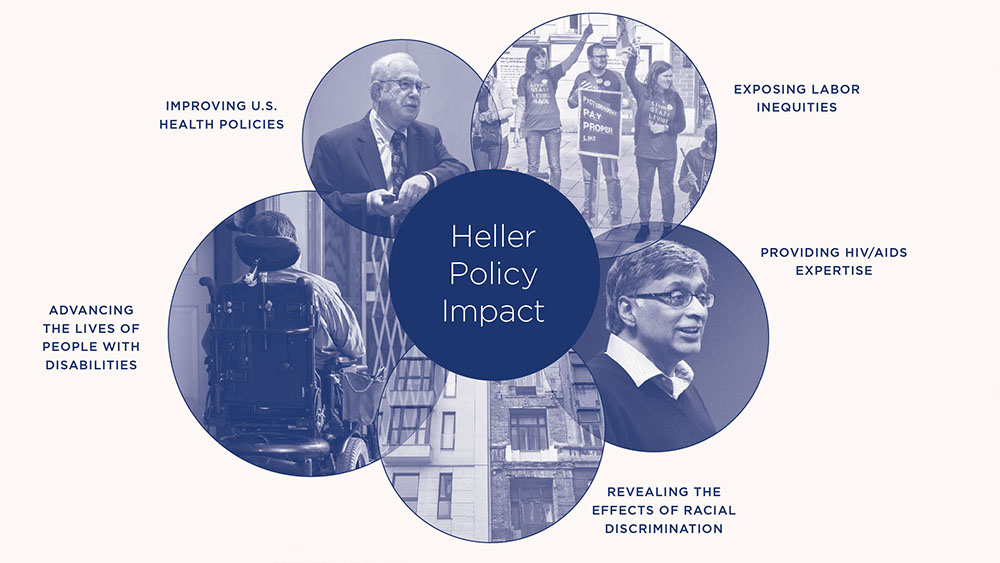
Since 1959, Heller's policy impact has grown in a variety of areas, including improving health policies, exposing labor inequities, providing HIV/AIDS expertise, revealing the effects of racial discrimination, and advancing the lives of people with disabilities.
1959 |
Today |
|
The U.S. was on the cusp of major social policy reform, as the early 1960s ushered in President Lyndon Johnson’s Great Society, which created Medicare and Medicaid. |
Former Dean Stuart Altman, who serves as director of the Schneider Institutes for Health Policy, is a leading expert on improving the U.S. health insurance system, advising five presidential administrations, from Nixon through Clinton. |
|
The ratio of CEO-to-worker pay was 20-to-1. |
The ratio is more than 200-to-1 — and that’s just the tip of the income inequality iceberg. Heller researchers are exposing disparities across the labor market, from gig workers losing stability and protections, to workers of color receiving less pay and being clustered in lower-paying professions. |
|
The earliest known human blood samples with HIV were collected from Kinshasa in the Democratic Republic of Congo. AIDS officially became a CDC-recognized epidemic in 1981. |
Heller tackles the problem of HIV/AIDS with global health expertise. Allyala Nandakumar worked to better track health spending in countries like Kenya and Rwanda in the 1990s, and is now the chief economist at the Office of the Global AIDS Coordinator. In addition, a team of Heller researchers is embarking on a novel effort to better understand HIV risk faced by youth and women with disabilities. |
|
The Civil Rights Act hadn’t yet been signed into law. |
Heller researchers reveal the effects of decades of discrimination on minority groups. Recent reports show how child opportunity is lowest for black and Latino children across the country, and how black student-loan holders remain mired in debt long after white borrowers are debt-free. |
|
The Americans with Disabilities Act was still three decades away from being passed, and people with disabilities were regularly being institutionalized. Gunnar Dybwad, an early faculty member, became a fierce advocate for the rights of people with disabilities. |
Heller conducts federally funded research on parents with disabilities, community living and the intersection of opioid use and disability, as well as providing expert testimony in front of federal agencies and assessing the policy plans of presidential hopefuls. |
